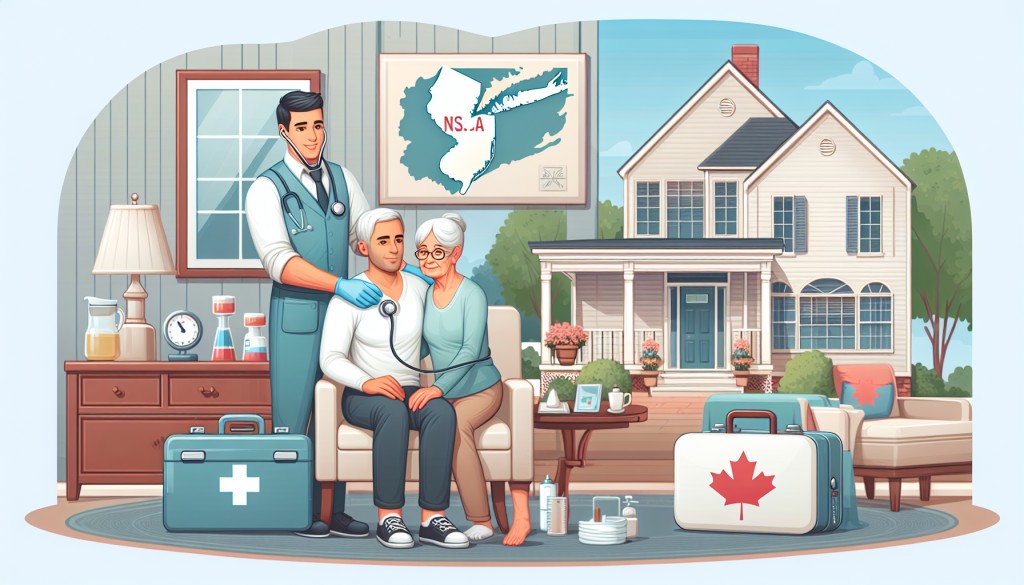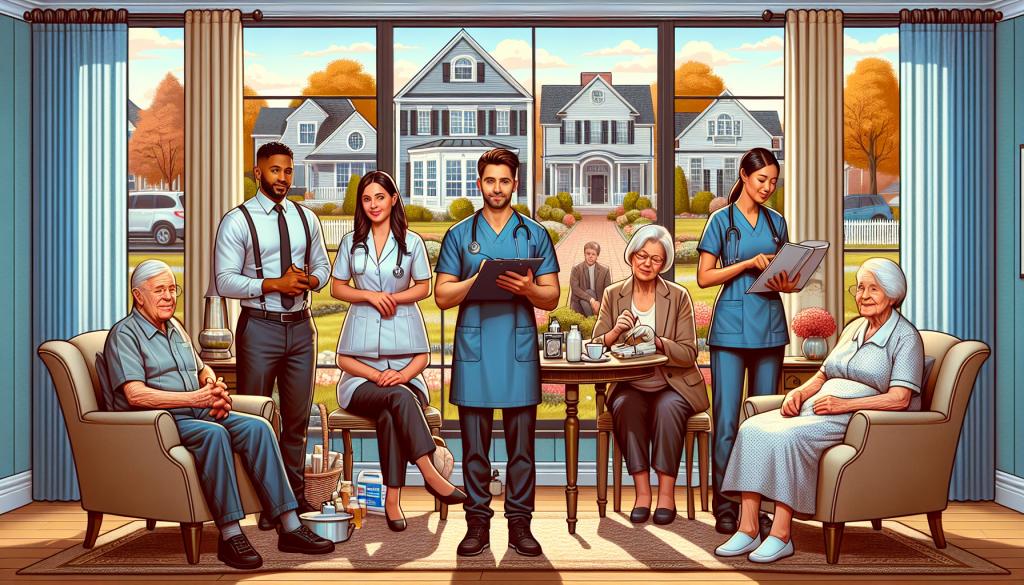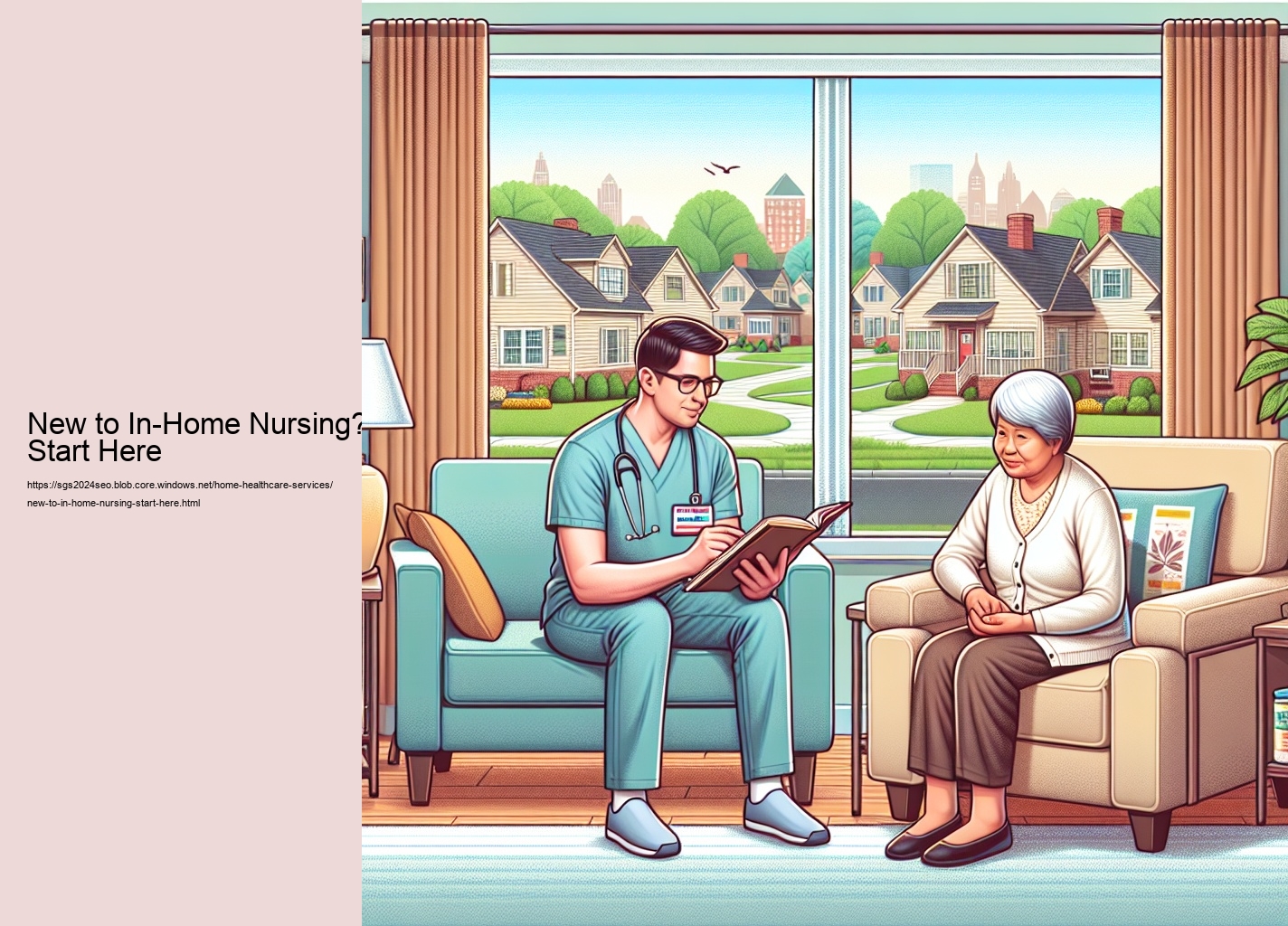Verify Licensing, Accreditation, and Top Quality Scores
Before you authorize with any kind of home healthcare provider in 2025, deal with licensing, accreditation, and quality ratings as non‑negotiables. Find the Best Home Health Package Deals Nearby . Start with the basics: validate the agency is correctly certified in your state for the specific services you require. "Home health" (proficient nursing, therapy, injury care) is regulated in different ways from "home treatment" or "individual care" (showering, clothing, companionship). Utilize your state health and wellness department or specialist licensing board's online data source to confirm the agency permit is active and in good standing, and that it covers the ideal solution classification. If the agency will bill Medicare, verify it is Medicare‑certified; you can cross‑check this on Medicare's Treatment Compare web site.
Accreditation isn't the like a license, but it indicates the agency has actually satisfied greater criteria and undertakes normal outside testimonial. Seek appreciated recognizing bodies such as The Joint Compensation, LAD, or ACHC. Request for an existing accreditation certification and the day of the last survey. For non‑medical home treatment, accreditation is volunteer; if a firm isn't recognized, they need to have the ability to clarify just how they keep top quality and oversight in its lack.
Do a deeper credential look at the people that will certainly remain in your home. Registered nurses, licensed practical nurses, physical and occupational therapists, and social employees all have private licenses you can confirm via state boards. Home health and wellness aides ought to fulfill state training requirements. It's sensible to ask the company to validate that all personnel have passed background checks, are out the federal OIG Exclusions Provide, and lug ideal expert obligation and employees' settlement insurance coverage. Demand proof of the company's basic responsibility insurance coverage; numerous families likewise request a certification of insurance policy upon having.
Use unbiased quality ratings to contrast firms, not just testimonies. On Medicare Care Compare, assess the star scores and explore certain measures like timely initiation of care, rehospitalization prices, renovation in movement and self‑care, and client experience ratings from HHCAHPS studies. In 2025, Home Health and wellness Value‑Based Getting applies nationwide, so ask the company to share its most recent efficiency or outcome reports and what it is doing to boost. For Medicaid home- and community‑based services, inspect your state's company directory site for top quality signs, important case records, and EVV (digital see confirmation) conformity information. Online evaluations can be insightful however should not override official quality information and regulatory documents.
Demand openness. Ask the firm for its most recent state study results and plan of modification, any CMS assents or fines, and just how problems are handled. In an age of telehealth and remote tracking, ask about gadget safety and security and personal privacy methods, HIPAA compliance, and whether any electronic tools they use are FDA‑cleared where suitable. If the company asserts health center or physician collaborations, validate exactly how they share information, specifically if they incorporate with your clinician's document system.
Warning include incredibly elusive answers regarding licensing or study history, expired accreditation, missing evidence of insurance, unusually high staff turn over without any description, or high quality scores well below regional averages. A reliable service provider will certainly welcome these concerns, give documents promptly, and assist you interpret rankings in the context of your requirements. Confirming credentials and quality in advance requires time, yet it is the most reputable means to safeguard safe, effective care in the house.

Examine Telehealth, Remote Tracking, and Data Safety
Evaluate Telehealth, Remote Surveillance, and Data Protection
In 2025, choosing a home doctor indicates looking beyond bedside abilities to the electronic foundation that supports your care. Telehealth, remote client surveillance, and information safety now identify how hassle-free, safe, and connected your care will certainly be.
Start with telehealth. Video visits need to feel as dependable as a workplace appointment. Ask how easy it is to timetable, whether you can see the exact same clinician for connection, and what occurs if the connection drops. Seek attributes like e-prescribing, protected messaging, after-visit recaps, and language gain access to such as interpreters or subtitles. Confirm the system services your gadgets, supports accessibility needs, and uses technology aid for elders or caretakers. Equally as important is assimilation: does the telehealth platform speak to your existing medical documents so your health care clinician sees updates? If care crosses state lines, validate licensure and whether your insurer covers the solutions you prepare to make use of.
Remote surveillance can transform daily life for people handling persistent problems, recuperating after surgical procedure, or needing security checks. Concentrate on scientific value and functional dependability. Which conditions do they keep track of and with what tools? Are the tools FDA-cleared and confirmed for home use? That watches the information, exactly how commonly, and what are the response times for irregular readings at night or on weekends? Ask how sharp thresholds are readied to restrict duds and just how typically those limits are assessed. Inspect whether devices are lent or bought, who handles configuration, training, and substitute, and what mobile or Wi‑Fi connection is called for. Interoperability still matters below too: will your information circulation right into your health record, and can you see it in a person app?

Information safety need to never be a second thought. A carrier's claim of "HIPAA certified" is a baseline, not a differentiator. Look for independent audits or accreditations (for instance, SOC 2 Kind II, HITRUST, or ISO 27001), security of information en route and at rest, multi-factor authentication, and role-based gain access to with audit logs. Ask about incident response and breach notice procedures, how usually they run security drills, and their technique to ransomware durability and back-ups. For home tools, confirm that information is secured on the tool and throughout transmission, software program is maintained to day, and lost or stolen equipment can be remotely wiped. Clarify who has your data, how much time it's retained, how to ask for deletion, and whether de-identified information is used for analytics or shown third parties. See to it a Service Partner Contract exists between the technology suppliers and the care service provider, which frontline staff are learnt privacy practices, consisting of obtaining authorization for any recording.
Lastly, look at the human side of the innovation. Will they assist establish your Wi‑Fi or provide mobile packages if you don't have broadband? Do they offer clear guidelines, large-print materials, multilingual assistance, and caregiver training? Is there 24/7 tech support and a simple method to rise clinical worries?
In a marketplace crowded with applications and devices, the very best home medical care solutions in 2025 mix high-quality medical care with reputable virtual accessibility, workable surveillance, and strenuous protection of your details. Choose the team that explains their modern technology simply, shows their safeguards, and makes it easy for you and your family to make use of.
Evaluate Treatment Plans, Staffing, and Caregiver Fit
Picking home health care in 2025 means looking beyond a shiny pamphlet. The right partner will reveal you a clear care plan, trustworthy staffing, and a caregiver that truly fits your loved one's needs and individuality. Begin with the care strategy. Ask how the firm analyzes requirements and collections goals: not simply identifies, yet practical capabilities, drugs, fall danger, cognitive assistance, nourishment, loneliness, transportation, and caretaker respite. A solid plan is composed by or under the guidance of a signed up nurse or specialist, with measurable outcomes (for instance, less drops, improved movement, medication adherence) and a timetable for testimonial-- frequently every 30 to 60 days or after any kind of modification in condition. In 2025, lots of firms make use of remote client surveillance and telehealth; make certain the plan describes what gadgets are made use of, who examines the information, and how details is shared with your physician. Interoperability and privacy issue-- ask whether their systems link to your medical professional's electronic records, just how data is secured, and who can see updates.

Staffing is where assures meet fact. Make clear whether caregivers are W‑2 workers or 1099 contractors; employees typically have stronger oversight, training, and insurance coverage. Verify qualifications (CNA, HHA, LVN/LPN, RN), history checks, driving records if transport is consisted of, immunizations, CPR, and any specialized training like dementia or Parkinson's treatment. Request for their turnover price, ordinary caregiver tenure, and fill rate for shifts-- numbers that disclose security. Continuity is critical: will you have a primary caregiver with a tiny back-up swimming pool, or see frequent rotations? What is the back-up plan for ill days, no-shows, tornados, or public health alerts? In a tight labor market, agencies that pay rather and provide benefits often tend to retain team better-- do not be reluctant to ask just how they sustain caretaker well‑being and protect against burnout.
Caretaker fit surpasses schedule. Share candid information concerning routines, language choices, cultural or religious methods, pet dog comfort, cigarette smoking level of sensitivities, songs or food choices, and personality design. A great company will certainly utilize organized matching-- abilities, language, social proficiency, sex preference, driving capability, and physical ability for transfers or tools-- to recommend a caretaker and established a meet‑and‑greet. Many will allow you attempt a brief trial change prior to dedicating. Observe chemistry: Does the caregiver listen, make eye contact, and ask thoughtful inquiries? Do they value limits while being proactive? If your liked one has dementia, search for persistence, redirection skills, and a tranquility, assuring visibility.
Communication should be basic and regular. Ask to see the family members site or app if one exists: Can you watch see notes, tasks finished, vitals, and messages? Exactly how rapidly does the office respond, and what is the escalation course after hours? Who is your named care manager, and just how frequently will they visit face to face to supervise care? In 2025, numerous states call for digital go to verification-- verify that clock‑in/ out secures you from payment for missed out on time, which your data is not utilized for anything else without authorization.
Quality and responsibility are nonnegotiable. Seek accreditation (Joint Commission, MAN, or ACHC) and state licensure. Ask about client complete satisfaction scores, problem resolution time, occurrence rates (falls, hospital stays), and any value‑based programs they take part in. Request 2 recent client references with comparable demands. Evaluation contract details very carefully: minimal hours, cancellation terms, replacement warranties, and what occurs if the caregiver isn't a fit. If you're using Medicare for experienced home health and wellness, clarify what is covered and for for how long; for exclusive duty treatment, inquire about long‑term care insurance, Medicaid waivers, VA advantages, and whether the agency can aid with paperwork.
Practical security inquiries complete the photo. How do they examine the home for hazards and advise devices? Do they train caregivers on safe transfers and infection control? What is the plan on electronic cameras in the home? If the caretaker will drive your loved one, validate insurance policy protection and automobile criteria.
Warning consist of vague or cookie‑cutter care plans, no RN oversight, high turnover, regular last‑minute timetable changes, unwillingness to share result information, aggressive sales tactics, or resistance to a meet‑and‑greet. Green lights include clear reporting, predictable staffing with back-ups, considerate matching, and a clear prepare for continuous renovation.
In the end, the ideal selection really feels both specialist and individual. You must see a plan you can comprehend, a team you can get to, and a caretaker your loved one looks forward to seeing. If any piece does not really feel right, maintain looking-- fit, in home treatment, is everything.
Compare Prices, Insurance Policy Coverage, and Agreement Terms
Contrasting rates, insurance protection, and contract terms is where most family members either save thousands-- or run into undesirable shocks-- when selecting home healthcare solutions in 2025. Treat this like you would certainly any significant purchase: demand clarity, validate advantages in writing, and read the fine print with a calm, unconvinced eye.
Start with pricing. Ask each carrier for an itemized quote that matches your actual treatment strategy: variety of hours per week, degree of caretaker (assistant vs. LPN/RN), and any specialized needs such as mental deterioration treatment, injury care, or post-surgical support. In 2025 you'll see several versions-- hourly prices, visit-based charges, live-in prices, and bundled "hybrid" plans incorporating in-person care with telehealth and remote tracking. Contrast apples to apples by consisting of attachments: minimum-hour needs, overtime limits, weekend and holiday costs, travel or car parking costs, registered nurse supervision or treatment administration charges, innovation or tool service, and charges for immediate scheduling. Ask exactly how frequently prices can change, whether there's a price-lock duration, and if boosts are tied to a fixed percentage or an index. Clarify what occurs when the treatment plan modifications mid-month: do they pro-rate or re-quote? If you're considering a windows registry as opposed to a full-service firm, consider your responsibility for payroll taxes, workers' settlement, and responsibility-- what looks less costly upfront can cost much more in risk and administration.
Next, determine insurance policy protection. Know the distinction in between clinical home health and wellness (experienced nursing, therapy, frequently covered if medically required) and non-medical home care (help with bathing, dishes, and companionship, often not covered by standard medical insurance). For Medicare: skilled home wellness can be covered when qualification criteria are fulfilled, but individual treatment is usually not, unless folded into a strategy of care. Medicare Benefit plans significantly use extra at home assistance, meal shipment, or remote surveillance-- advantages differ commonly by strategy, need in-network service providers, and might need prior consent or recertification, so validate limitations, copays, and check out caps before you begin. Medicaid benefits and Home- and Community-Based Providers waivers can be generous however vary by state and managed treatment strategy; waiting lists and provider networks matter. Lasting care insurance policy can money considerable hours once profit triggers are satisfied (usually needing help with 2 or more activities of daily living or cognitive impairment), however view removal durations, everyday or month-to-month caps, and lifetime maximums. Professionals may get Aid and Participation or Homemaker/Home Wellness Assistant services via the VA. Ask if the company will confirm advantages, manage consents, and costs straight, and whether they'll proceed treatment if authorizations lapse. If you plan to self-pay, ask about price cuts for longer routines, autopay, or packed programs. HSAs and FSAs can usually be utilized for clinically required solutions; for tax reductions or credit reports, consult a tax expert.
Currently, the agreement terms-- the component many people skim and later regret. Seek:
- Discontinuation and notification: Can you stop or cancel without penalties? Exist minimums or early termination charges?
- Auto-renewal and price modifications: Just how are increases connected and topped?
- Staffing and alternatives: Just how rapidly do they replace a caregiver who's sick or not a fit? Is there a trial period or contentment guarantee?
- Non-solicitation and buy-out: If you intend to hire a caregiver directly later, what fee uses?
- Staff member standing and insurance coverage: Are caretakers W-2 employees covered by employees' comp and responsibility insurance policy? Request for evidence.
- Range of method: What jobs can assistants legitimately carry out in your state (drug administration, transfers, catheter treatment)? That oversees and how typically?
- Documents and openness: Will you have accessibility to digital go to logs, care notes, and reassessments? That updates the care strategy and how often?
- Billing cycle and conflicts: Down payments, late charges, refunds for unused hours, rounding policies for change start/stop times, and the procedure for opposing a bill.
- Security and personal privacy: Event coverage, infection control, background checks, driving plans, and information privacy for any kind of remote tracking gadgets.
- Dispute resolution: Arbitration clauses, place, and your civil liberties under state customer regulations.
Do a basic "real price" comparison throughout finalists: predicted once a week hours x price + all expected fees-- validated insurance policy compensation. Then layer in non-financial value: responsiveness, back-up protection, supervisory top quality, and result monitoring. In 2025, trustworthy agencies can reveal quality metrics and may participate in value-based programs-- ask for their hospitalization reduction rates or customer satisfaction ratings.
Prior to signing, get every assurance in composing, including beginning day, caretaker qualifications, and the precise solutions covered. If the agreement feels dense or prejudiced, have a trusted advisor or lawyer examine it. The very best offer is not simply the lowest rate-- it's the arrangement that delivers safe, dependable treatment with predictable expenses and no surprises.
